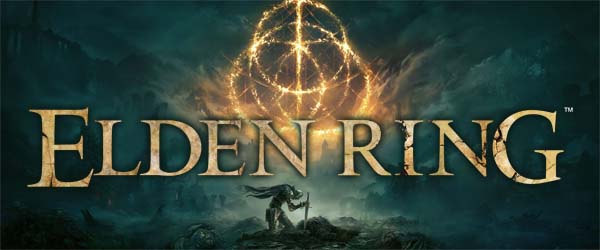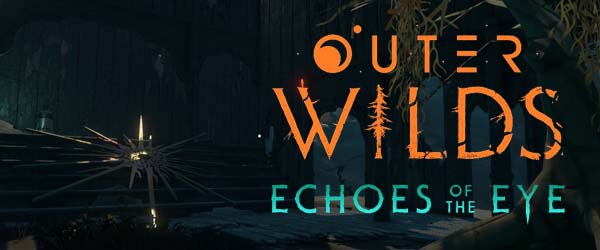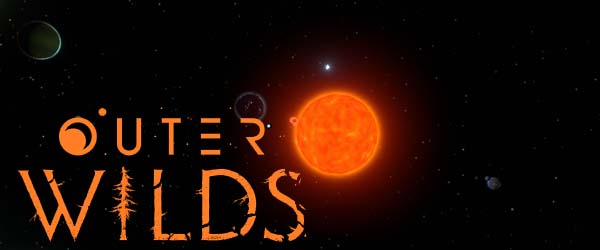
Elden Ring is winning "Game of the Year" awards left and right. Critics and players are almost unanimously praising From Software for successfully adapting its Dark Souls design into an open world in its latest release. And I have to say, it is, indeed, one of the better open worlds that I've seen.
But you know what? I always kind of considered Dark Souls to be an "open world" game in all the ways that matter. I even brought it up as an example in previous video essays about open worlds. So as far as I'm concerned, Elden Ring isn't really doing a whole lot that the original Dark Souls wasn't already doing. Elden Ring just does more of it and is less subtle in its approach.
This entire essay is available in video format on YouTube.
Why do I consider Dark Souls to be a practical open world? Well, first and foremost, most of the world of Dark Souls is seamlessly connected. Almost every landmark that you can see in the distance is a place that you can (and probably will) actually go. This is also largely true of FromSoft's other games, including Bloodborne and Sekiro. The first 2 Dark Souls games, as well as Demon's Souls are also open to a lot of significant sequence-breaking, allowing players the option to handle levels out of order, or to skip entire levels altogether.
Dark Souls most dramatically diverges from a more traditional open world (like Skyrim) by wrapping its world in a vertical helix, rather than stretching it out over a flat plane. From Firelinek Shrine to the depths of Lost Izalith and Ash Lake, to the heights of Anor Londo and the Duke's Archives, Lordran is an almost completely contiguous place. But despite the narrower confines of the game's levels, there is still a sense of awe and wonder to exploring the depths of a level, only to eventually circle back to someplace familiar and slowly realize that everything in the world fits in place. It's all functional, and the relative arrangements of game levels helps to tell the story of how Lordran's world worked, and how it eventually collapsed. And now that Elden Ring has come along with a more traditional open world, it kind of proves something that I subconsciously knew all along: From Software's particular approach to story-telling is actually perfectly suited to an open world design.
Oh, and before I go on, I want to provide a minor spoiler warning for Elden Ring, and pretty much all of From Software's catalogue back to and including Demon's Souls. I will be talking about how these games deliver their narratives, which will involve talking a bit about the overall narrative structure and some thematic elements that these games all have in common. I will provide a warning for any explicit story spoilers, so that you can skip those. But if you want to go into any of these games completely fresh, then I recommend you play them first, then come back to this video.
Dark Souls's world is wrapped around a vertical helix, instead of spread across a flat plane. [More]

When I played it last year (after waiting over a year for its timed Epic Store exclusivity to end), Outer Wilds quickly became one of my favorite games ever due to its innovative sci-fi, exploratory gameplay in its dynamic sandbox solar system full of interesting places that are genuinely worth exploring. It was a compelling sci-fi game about the nature of science and the desire to find out place in the universe. It was also a compelling player-driven mystery game that doesn't hold the player's hand and which provides genuine "eureka!" moments.
I wasn't expecting an expansion because the game seemed so perfect and self-contained that I struggled to even think of what could be included in an expansion. Would they add more planets to the solar system? Would it be a stand-alone prequel with the player playing as one of the extinct Nomai?
But I sure as hell was not going to pass up an excuse to revisit Timber Hearth!
I wasn't going to pass up an excuse to revisit Timber Hearth!
River rafting around the world
One of my favorite things about Outer Wilds is its open-ended exploration of the hand-crafted solar system. Each world is a little puzzle box for the player to unlock, with the solutions to every puzzle involving some sci-fi physics concept that the player has to learn and apply.
The puzzles of Echoes of the Eye don't seem to have that same sci-fi quality to them. Most puzzles involve the use of light, and feel like they could be puzzles in any earthbound adventure or fantasy setting. I just point flashlights at things to trigger mechanisms, turn lights off or on to trigger secret passageways, or turn off my source of light to sneak past photo-sensitive sentries in the dark. I guess I should praise the puzzle design for never falling back on the tried-and-true (yet rote) method of reflecting light off mirrors or through prisms. The actual puzzles are a bit more clever than this, but I just don't find it to be a very engaging or interesting gimmick, especially compared to how novel and creative the core Outer Wilds puzzle box is.
The use of light as the instrument for most interactions with Echoes of the Eye seems to be the result of a concerted effort by the developers to use base game mechanics that are under-utilized in the base game, such as the flashlight and ability to nap at bonfires. The puzzles just lack that sense of awe and discovery that comes with progressing in the base game.
Echoes of the Eye starts off strong with solving a space-based mystery.
Some of the late puzzles do start to embrace Outer Wilds's sci-fi nature. They hide some very fun and interesting surprises that really mess with the player's perception of reality in a very video-game-meta sort of way. But they are so esoteric that the game almost has to literally tell the player what to do. It's like "summoning the tornado in Simon's Quest" levels of esoteric at times.
Honestly, I think the single best puzzle in the game is the one that the player has to solve just to get access to the DLC! It's also the most "Outer Wilds" feeling puzzle in the game. The developers managed to cleverly hide the DLC in plain sight, as if it had been there all along.
The opening for the DLC tasks the player with finding a remote satellite and solving a simple puzzle involving it. Then the expansion treats the player with the awe-inspiring discovery of a massive hidden world that makes up the expansion's primary setting. After that, however, everything feels like pretty typical adventure game stuff. Instead of planet-hopping in a tiny space capsule, I find myself white-water rafting and watching home movies on slide projectors. Later on, there's some horror-adjacent exploration of dark spaces with just a flashlight, and even a little bit of hide-and-seek. Again, it's nothing I haven't seen in a hundred other indie games.
[More]
15313440-eb6a-44bf-a4ea-2d4d369d1f4e|0|.0
Tags:Outer Wilds, Echoes of the Eye, Steam, PC, Epic Game Store, science fiction, mystery, exploration, open world, Eye of the Universe, solar system, space, ring world
I do not have particularly strong opinions one way or the other about the video game sub-genre known as "walking simulators" in general. I have strong opinions about some of the games that I've played within this genre, but I would not say that I either like or that I dislike "walking simulators" as a whole genre. Some work well and are good games. Others are un-engaging or lazy and didn't particularly work for me.
For example, I hated Dear Esther and Ether One. I was immensely disappointed in Amnesia: A Machine For Pigs, after having enjoyed The Dark Descent. But on the other side of the coin, I thoroughly adore Gone Home, Firewatch, and What Remains of Edith Finch.
Patrons had early access to the full video essay.
Are "Walking Sim" games?
So what is a "walking simulator"? Well, like with most things in pop culture, the definition will vary depending on who you ask. But I think most people would agree that a "walking simulator" can be accurately described as interactive entertainment that conveys a narrative almost exclusively through the exploration of an environment and the clues provided therein. You may notice that I used the term "interactive entertainment" as oppose to "video game". I did this in order to keep this discussion's definition as non-contentious as possible. One of the criticisms of walking simulators that I specifically wish to address is the idea that they are not video games, and such critics would immediately object to the use of the term "video game" in the definition. These experiences generally lack any of the violent conflict that is present in most video games, and the mechanics rarely go beyond navigating obstacles, solving puzzles, or managing a limited inventory.
While I am perfectly content to call walking simulators "video games", there are somewhat valid arguments for why the label might not be appropriate for such entertainment products. It could be argued that they are not video games because they lack conflict; they lack a traditional win state, fail state, or any stakes at all; and they lack mechanical depth or complex systems. I personally do not accept these arguments as disqualifying walking simulators from consideration as "video games". There are plenty of universally-accepted video games that also lack one, or even all three of those criteria.
Many games have lacked violence conflict, traditional win states, or complicated system mastery. [More]
33ddcfeb-42d4-4173-a671-208c4b4b2d96|0|.0
Tags:YouTube, walking simulator, horror, politics, Dear Esther, Silent Hill: Shattered Memories, Amnesia: the Dark Descent, Amnesia: a Machine for Pigs, Layers of Fear, _Observer, Blair Witch, Soma, Gone Home, What Remains of Edith Finch, Firewatch, Outer Wilds, Death Stranding, P.T., Silent Hills, PS5, haptic feedback

I refuse to give money to Epic,
and waited for Steam release.
Outer Wilds was one of my most anticipated games in 2019. As such, it was immensely disappointing that it became a timed exclusive for the Epic Games Store. I have a lot of issues with how Epic Games runs its business, and with the ethics (or lack thereof) of the company, and so I refuse to give them a single penny of my money. Our daughter plays Fortnite with her friends, and we're not going to disallow her from doing such (and besides, her socialization options were incredibly limited during the COVID-19 pandemic lockdown, and I think playing Fortnite stopped her from going stir crazy). But I've told her that the first time she asks me for money to buy V-Bucks, it will be the last time she plays the game.
I could have bought Outer Wilds on PS4 a year ago, but it just looked like the kind of game that would be better experienced on PC. I've been burned enough times by Bethesda RPGs that I'm always skeptical of a console's ability to adequately run a game with a world of the scope and comlexity of Outer Wilds. So I bit the bullet and waited the year for the game to release on Steam.
The opening screen recommended the use of a game pad, and I obligingly started using my PS4 controller on my second play session. And I've read that the game ran just fine on consoles. So I guess I could have spared myself the wait and just played on PS4 from the start. Ah well, live and learn.
Outer Wilds plays best with a controller anyway, so there was no need for me to pass up the console release.
Now to go back to finishing Fallout: New Vegas while I await the Steam release of The Outer Worlds...
Knowledge is your upgrade
Readers of my blog know that I'm not a huge fan of most open world games. The sandboxy nature of those games tends to lead to stagnant stories and worlds that feel ironically dead. They also tend to be full to the brim of monotonous copy-pasted content that becomes a drag to play.
Outer Wilds offers an entire solar system as an open world sandbox for you to explore. Granted, the scale of this solar system is considerably shrunk down in order to accommodate a game, such that an entire planet is about as big as a small neighborhood, and the different planets are only a few kilometers apart from one another. It's fine. It works well enough with the game's cartoony aesthetic style.
You have an entire toy solar system to play in.
What's important though, is how rich with detail and intrigue this world solar system is. Nothing looks or feels copy-pasted. Every nook and cranny of the map contains something new that you haven't seen before. On top of that, the map is positively dynamic! [More]
22d4dd2b-5bc2-4d04-90ed-eb6257d5218e|1|5.0
Tags:Outer Wilds, Steam, PC, Epic Games Store, timed exclusive, space, solar system, exploration, open world, nova, Nomai, comet, black hole, time loop, science fiction, mystery, No Man's Sky, Star Trek
|

| 12 | | | | | | | 60 | | 11 | | | | | | | 55 | | 10 | | | | | | | 50 | | 09 | | | | | | | 45 | | 08 | | | | | | | 40 | | 07 | | | | | | | 35 | | 06 | | | | | | | 30 | | 05 | | | | | | | 25 | | 04 | | | | | | | 20 | | 03 | | | | | | | 15 | | 02 | | | | | | | 10 | | 01 | | | | | | | 05 |
|